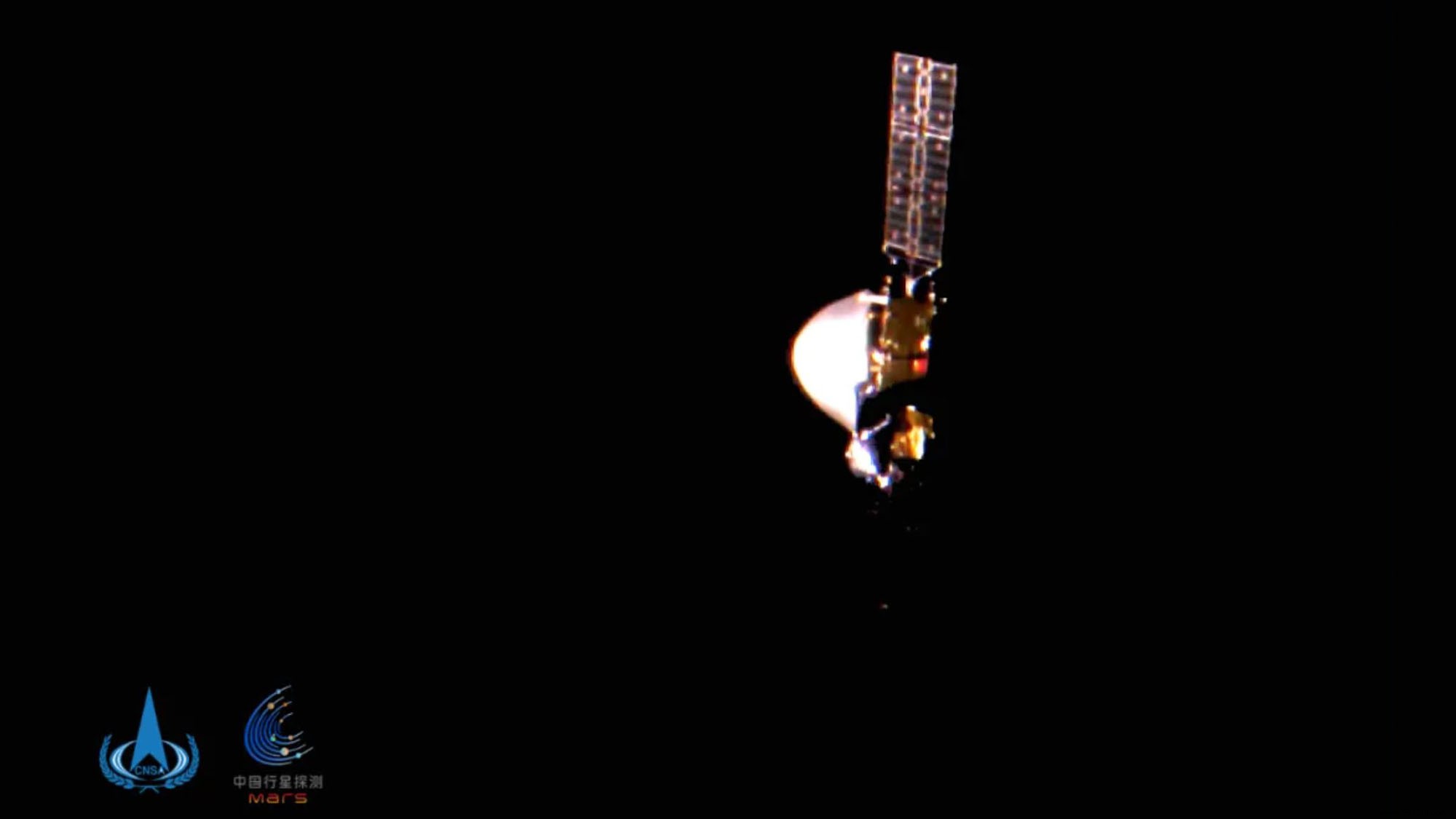The Chinese National Space Administration has just executed a trajectory maneuver for its Tianwen-1 mission allowing it to adjust its orbit. The country is now preparing for its landing on Mars.
While Perseverance is still making headlines following its successful landing on the red planet, China is preparing for its turn for that of its rover which, we recall, had took off from the Wenchang base two days before the American mission. In this sense, the probe, which successfully entered orbit around the planet on February 10, has just adjusted its trajectory. It will remain in this orbit awaiting the planned landing in three months .
In the meantime, it will map the surface of Mars and use its cameras and other sensors to collect additional data about its landing site. For now, the mission is still planned to land in the vast rocky plain called Utopia Planitia where the American lander Viking 2 had already landed in 1976.
China's attempt will involve deploying a parachute, firing retrorockets and inflating huge air cushions. This eventful landing will be reminiscent of that of the Pathfinder mission in 1997.
If successful, China will be the second country only to gently land a vehicle on Mars, after the United States. Recall that landing on the red planet is notoriously tricky, mainly due to the lack of atmosphere . A dozen machines have already missed their target since the 1960s.
The size of a golf cart, China's solar-powered rover will collect data on Martian groundwater. It will also be about mapping the geological structure of the planet.

Note that Tianwen-1 represents the most ambitious mission to date of the Chinese space program which has made incredible progress in recent years. It should be remembered that China placed its first taikonaut in orbit around the Earth in 2003. Last year, the country also distinguished itself by bringing back to Earth the first lunar samples for forty years, two years after having landed with success on the "dark side" of the Moon.
Finally, we should point out that China is currently building a space station which will succeed the ISS in the coming years. On board, the taikonauts will conduct scientific experiments and prepare for future long-duration missions in space. In this spirit, the basic module of the structure has just successfully passed its flight acceptance exam. It will be launched in the spring, before being joined by a first crew a few weeks later.